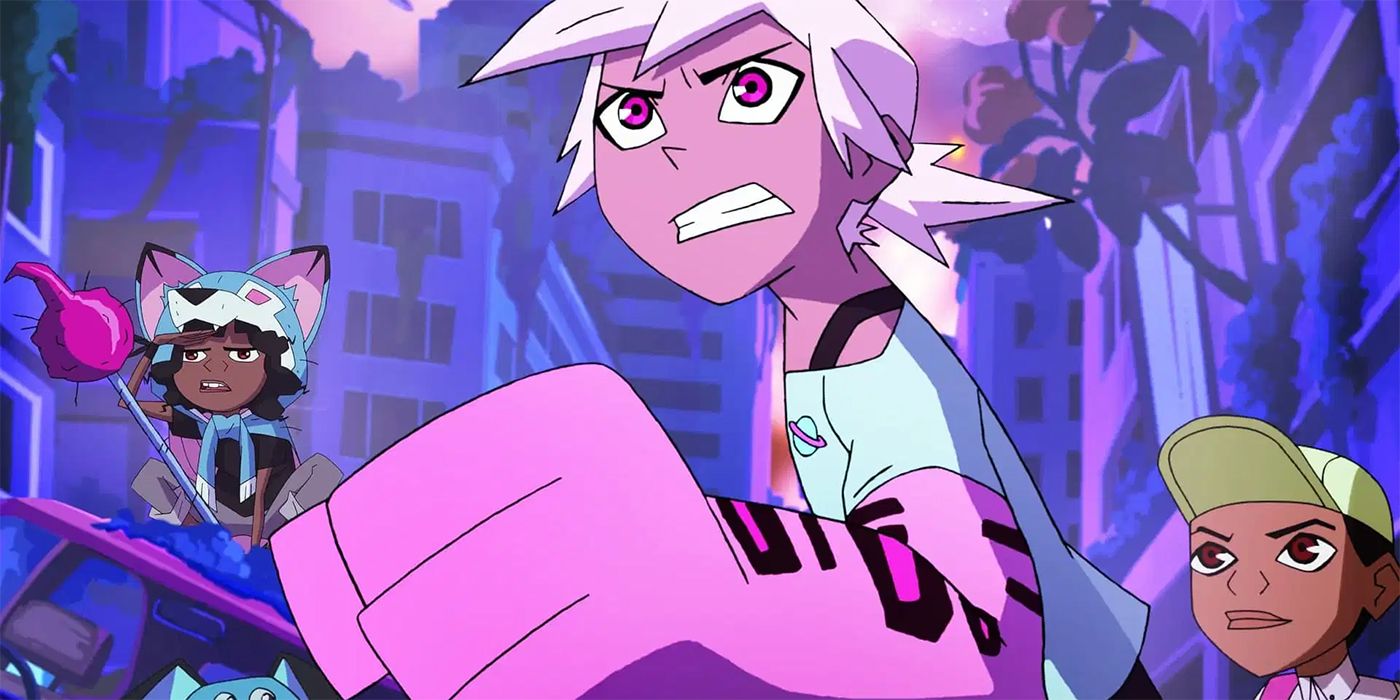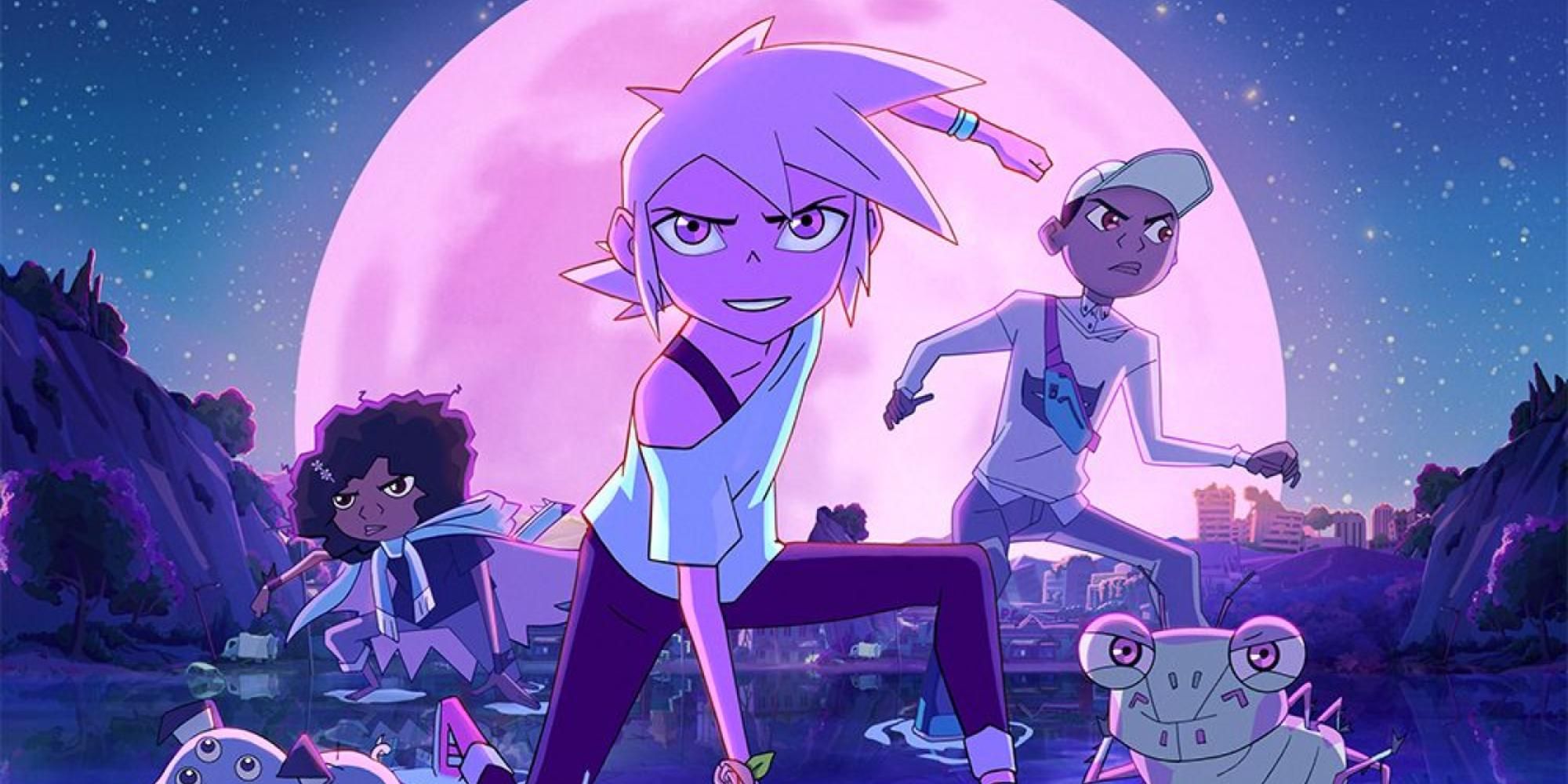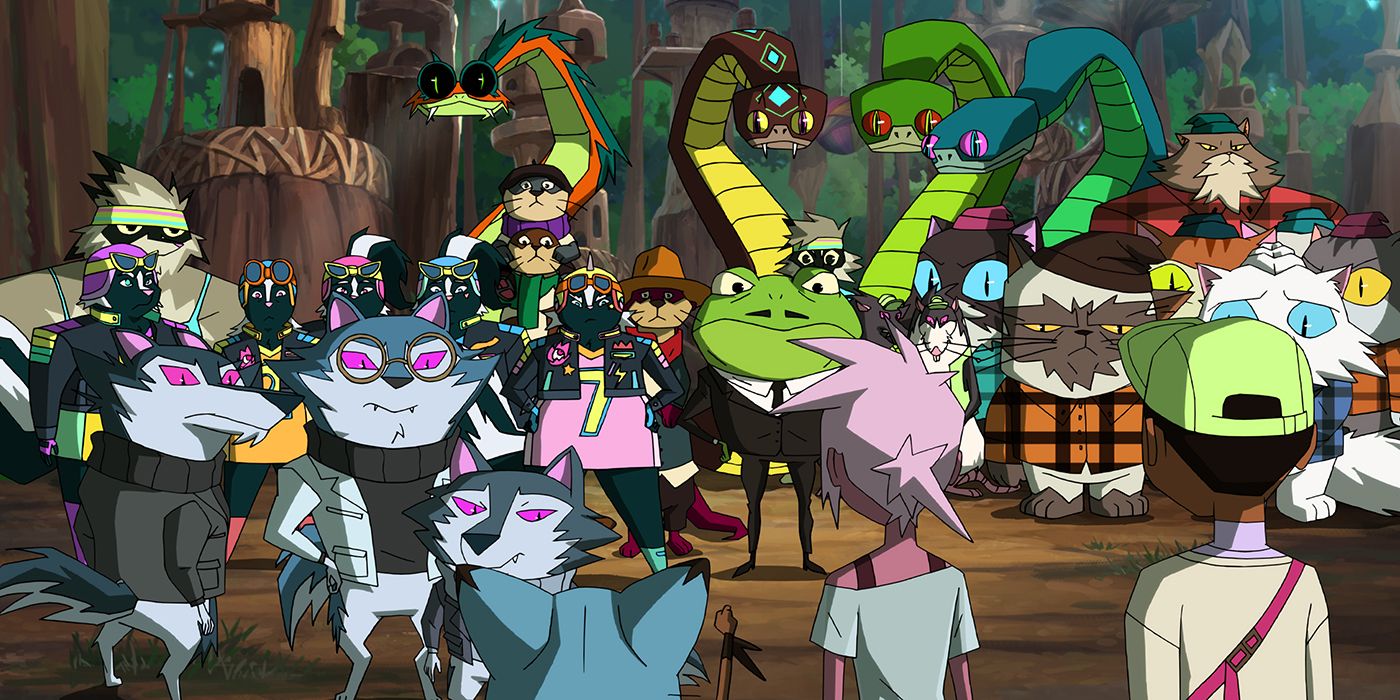Kipo and the Age of Wonderbeasts returns to Netflix for its third and final season on October 12, and the Dreamworks animated series will bring Kipo's quest of inclusion to a close. Like She-Ra and Voltron before it, Wonderbeasts tackles important and relevant issues through the eyes of its young protagonist.
Over the course of the first two seasons, the show explored a world where animals mutated, growing several sizes and gaining the ability to speak, and the surface became near-unlivable due to the tensions between these "mutes" and humans. Kipo (Karen Fukuhara), however, befriended the mutes she encountered on the way to reuniting with her family and convinced them to live in harmony with humans.
Unfortunately, another obstacle stands in the way. This time, it's Dr. Emilia (Amy Landecker) poisoning the humans against mutes so that she can revert them back all to their previous animal state. Fukuhara spoke to Screen Rant about the ways in which Kipo's unrelenting optimism is tested by new dangers and how she feels about her journey after three seasons.
Now that Kipo and the Age of Wonderbeasts is coming to an end, how do you feel about Kipo's evolution? She is such a beacon of hope and optimism, but she's tested more than she'd never been this season.
Karen Fukuhara: Yeah, I think you brought up such a good point. She's always been so positive and enthusiastic. She's headstrong, and throughout the season, she grows more and more into a leader. Especially in season three, her doubt creeps in because the situation given to her is so incredibly hard to navigate. She seems discouraged in the middle of season three, but I think she never loses her positivity throughout it all.
Although she does get discouraged a few times, she never really loses herself. And the definition of Kipo is inclusivity, so she's trying to get the humans and mutes on the same side. She thinks that there's always going to be a way to make everything better for everyone. She's determined to make it right, and the core of her nature is to keep her positivity glowing. She evolves and becomes an adult throughout the three seasons, but I don't think she ever loses that completely.
One really huge obstacle she faces in that is, of course, Dr. Emilia obfuscating the truth. A lot of human characters aren't able to see the facts for themselves. There's one character, Doag, who is emblematic of the human being blind to reality until Kipo can open their eyes. Can you talk a little about the themes of extremism and fanaticism that Kipo - both the show and character - is fighting against?
Karen Fukuhara: Yes, Doag's world was shaped by her experiences. If she doesn't know about the other side, she can't really see it from their side. She needs someone to explain it to her, and then she can make her own decision.
I think that's something that's going on in our world today. I mean, the media is picking up on things that they think would be good for their audience, and not all the information is presented for us to make our own decisions. I just watched a documentary on Netflix, [The Social Dilemma], and it touched upon the fact that not every person in every state is given the same information. So, of course, we will have swayed decisions.
I think that a perfect example is someone like Doag, who isn't presented all the information because she doesn't know what could be right from wrong. What is actually wrong in Kipo's world is presented to her as the right thing, and it's so twisted. Dr. Emilia is so manipulative in a way, because she's pretending to be this good human. I think it really portrayed real-life instances in a very cute way.
We really see Kipo's infectious optimism reflected in how she helps change Wolf's life and perspective over the course of three seasons. Can you talk a little bit about that friendship and dynamic that's at the heart of the show?
Karen Fukuhara: Of course, I love their friendship. I think it's a testament to how positive Kipo can be and how adamant she can be when she wants something. I think she's very headstrong, so not only is she this way with Wolf, but she's also this way with a lot of the things that she believes in - or the studies and music that she does. She tackles everything wholeheartedly, and she doesn't really look back. When she wants something, she doesn't stop. She keeps going, and that's very courageous of her, I think.
I love their friendship. I just love all the scenes where Wolf pretends she doesn't like people, but really she does. One of my favorite episodes is when we're both looking for birthday gifts for each other, and Kipo was teaching Wolf that this is something that people do.
I think Wolf had a lot of healing to do, especially in season three. She has a lot of trauma regarding family and friendship. She's been a lone wolf, if you will, all her life and doesn't know how to trust again. But Kipo is infectious, as you said, so she keeps going and finally breaks Wolf down in a positive way. Through Kipo, she is able to heal - and through that healing process, she has new discoveries that people can be trusted and that she can have true deep connections with other humans and mutes.
I'd like to believe that if Wolf didn't meet Kipo, what happens in season three with her family - which I won't reveal - could not have happened.
You mentioned the word headstrong for Kipo, which I totally agree with. And it reminded me of another character of yours that I absolutely adore, Glimmer. They may have different dispositions, but headstrong definitely describes them both. How do you think they would react to each other if they were in the same universe?
Karen Fukuhara: Oh, my goodness. I just got this question, and I think it would be so cool. I think Kipo is so positive that Glimmer would be either cautious of her.
Okay, maybe Kipo will become really good friends with She-Ra and Bow, because Bow and Kipo are a bit similar with their infectious positivity in every situation. So, maybe they'll become friends and Glimmer could get a little jealous, but then eventually they'll be good friends. I'm not even gonna say the other option, because the other option's boring.
Earlier you brought up how Kipo's nature is inclusivity, and I love that this is reflected behind the scenes of the show itself. Have you ever felt that diversity pay off in the script or in conversations with the showrunners?
Karen Fukuhara: Oh, yeah. I think it means a lot when the inclusivity is reflected in the cast and the voice actors; that is always a nice thing. Being on the show is so special, because [ Radford Sechrist]'s wife is Asian, so there's a ton of Asian culture sprinkled into the show. Kipo's mom is played by a Korean woman, [Jee Young Han]. And Kipo's pig is named Mandu, which means dumpling in Korean.
In season three, there's [a fictional kpop group]. I have never seen that in American animation ever before. And it's just done so beautifully. It's funny, but it's done truthfully. I just love it, because you don't see that ever. And it's something that I had grown up with, and that I have seen through Asian media. Suddenly, for it to pop up in mainstream culture in American animation was such a treat.
There's a ton of moments of inclusivity, and I love it. It's done really well, too. It's not a parody of something; it's done truthfully. I mean, I would go to that concert.
Sterling K. Brown plays your father. I know you're not there in the recording room with, but what is it like to know that he is your father?
Karen Fukuhara: I mean, you don't even understand how many times I tried looking in my emails to see if anyone was recording with me. That would have been really cool. Also, Sandra Oh was in She-Ra. I'm, like, one connection away. I'm going to get there one day. I will meet them, we'll record together - maybe for a movie or a spin-off. But it's really cool to have such a such a great cast. You can hear it, you know? You can hear it when you're watching it. They're so talented.
He's amazing, and his singing is so good.
I love all the songs in Kipo and the Age of Wonderbeasts. Do you have any that are particularly memorable for you?
Karen Fukuhara: Oh, yes. I love the song that Kipo has as her anchor, ["Heroes On Fire"]. Wolf sings it at one point too, and that is a very special moment. And then, personally, I just love her acoustic guitar song with her dad, ["What We Have Is You"]. It's really calming, and it feels like home. I've listened to that one a lot. I love both of those songs.
You're also killing it on The Boys, and I know it's coming back. So, what are you most excited about for your future?
Karen Fukuhara: For my future? It was really bittersweet when Kipo ended, especially because I had been with the DreamWorks family since She-Ra, which began before Kipo. I had been with the DreamWorks family before Kipo started, and then once it ended, it felt kind of like, "Oh, I'm not even gonna go there for press now; we're in a pandemic." I don't get to see that many people, so that was very bittersweet.
In terms of The Boys, I'm so happy that season three was picked up. I cannot wait to shoot; it's going to be really fun. I just am very excited to work again. I missed being on set. You forget all the moving parts, but when you're at home, doing everything on your own - especially in the beginning with doing hair, makeup and styling. And the technical aspects of trying to figure out the laptop and the zoom, and we've got some ring lights going at home... You start to like, realize how much other people do for you as an actor on set. And the camaraderie that comes with that; being on set with someone for hours at a time, you start to build genuine friendships with the hair and makeup team and the wardrobe ladies.
In terms of Kipo, it's especially the director and obviously Rad and Bill, who are always there, behind the glass. I just miss that human connection. I'm very excited to get back into it.
Kipo and the Age of Wonderbeasts arrives October 12 on Netflix.



